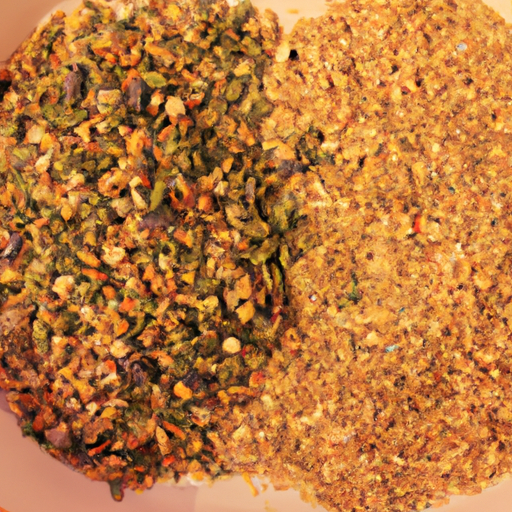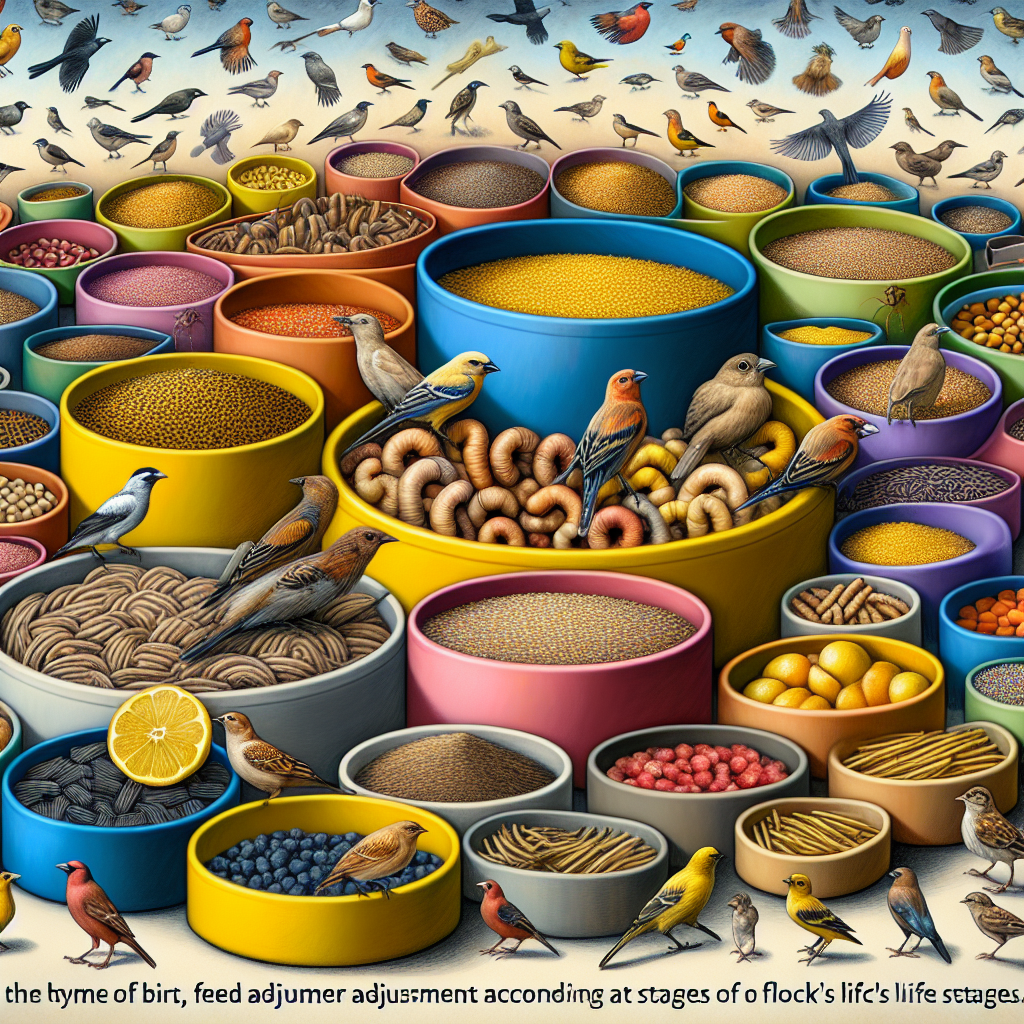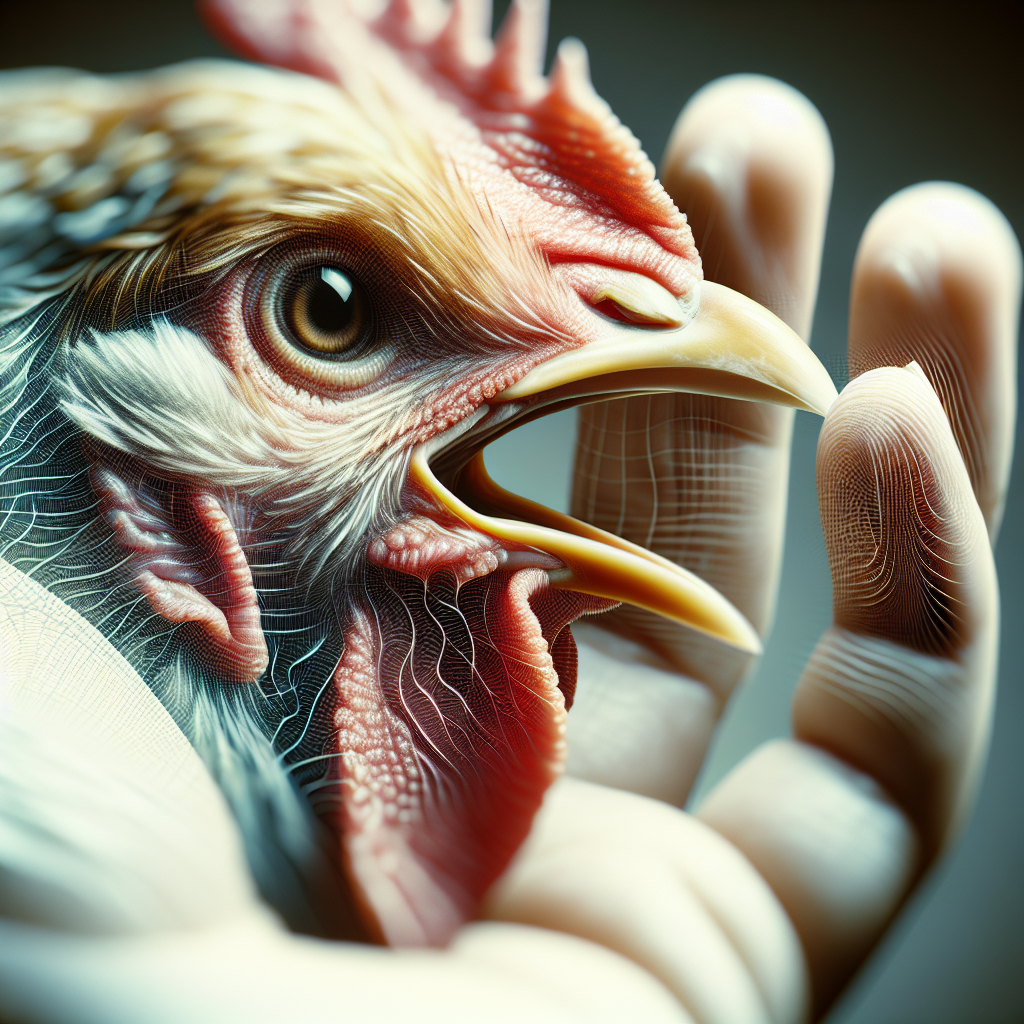Are you a proud owner of brooding hens, but finding it challenging to identify the perfect feed for them? Look no further! In this article, we will explore the various options available and provide you with valuable insights on what type of feed should be given to brooding hens. Whether you’re a seasoned farmer or just starting with a small backyard flock, this information will help ensure that your hens receive the optimal nutrition they need during this critical period. So, let’s get started and ensure your brooding hens receive the best feed possible!
Benefits of Providing Proper Feed to Brooding Hens
Nutritional Needs of Brooding Hens
Providing proper feed to brooding hens is essential for meeting their nutritional needs. These hens have specific dietary requirements during the brooding period to support their growth, development, and egg production. By providing a well-balanced diet, you are ensuring that your hens receive all the necessary nutrients they need to thrive.
Improved Growth and Development
Proper feed for brooding hens promotes improved growth and development. During this critical stage, hens experience rapid growth as they mature into productive layers. A diet rich in essential nutrients, such as proteins, vitamins, and minerals, supports their skeletal and muscular development, resulting in healthier and stronger hens.
Enhanced Egg Production
Ensuring that brooding hens receive the right feed also leads to enhanced egg production. The nutrients present in their diet directly impact the quality and quantity of eggs they produce. A balanced diet that meets their energy and protein requirements promotes optimal egg production, resulting in a higher number of eggs and improved eggshell quality.
Health and Disease Prevention
Proper feed plays a crucial role in maintaining the health and well-being of brooding hens. A diet that meets their nutritional needs helps boost their immune system, making them more resistant to diseases and common health issues. By providing adequate nutrition, you are fostering a healthy flock and reducing the risk of potential illnesses and deficiencies.
Considerations for Choosing Brooding Hen Feed
Stage of Development
The stage of development of the brooding hens is an important factor to consider when choosing their feed. Starter feed is typically provided to newly hatched chicks to support their early growth and development. As they grow older, their nutritional requirements change, and transitioning to grower/developer feed is necessary. Finally, when the hens reach the egg-laying stage, they should be fed layer feed specifically formulated to meet their egg production needs.
Breed and Genetic Factors
Different breeds of hens have different nutritional requirements. It is crucial to consider the breed and genetic factors when selecting feed for brooding hens. Some breeds may require higher protein content, while others may have specific dietary sensitivities. Consult with breed-specific guidelines or seek advice from poultry experts to ensure that the feed you choose aligns with the specific needs of your breed.
Feed Form and Presentation
The form and presentation of the feed are also significant considerations. Pelleted or crumbled feeds are common options for brooding hens as they provide a consistent blend of nutrients. These forms of feed are readily consumed by the hens, reducing waste and ensuring that they receive the required nutrition. Pay attention to the size and texture of the feed particles to ensure they are suitable for the age and size of the hens.
Budget and Availability of Feed
Budget and feed availability are practical considerations when choosing feed for brooding hens. Evaluate your budget constraints and the availability of different feed options. While it is important to prioritize the quality of the feed, it is also essential to find a balance between cost and nutrition. Research local suppliers and compare prices to ensure you are getting the best feed within your budget.
Types of Feed for Brooding Hens
Starter Feed
Starter feed is the initial feed given to newly hatched chicks. It is designed to provide all the necessary nutrients for healthy growth and development. Starter feed typically has a higher protein content to support the chicks’ rapid growth during their early days. It is usually finely ground or crumbled to make it easier for the young chicks to consume and digest.
Grower/Developer Feed
As brooding hens grow older and transition from the starter phase, they require a diet that matches their changing nutritional needs. Grower/developer feed is specifically formulated for this stage of development. It contains a slightly lower protein content compared to starter feed, but still provides the necessary nutrients for growth and development.
Layer Feed
Once brooding hens reach the egg-laying stage, they should be switched to layer feed. Layer feed is specially formulated to meet the nutritional demands of hens during this phase. It typically contains higher levels of calcium to support eggshell production. Layer feed also includes balanced levels of protein, energy, vitamins, and minerals to ensure optimal egg production and overall health.
Supplemental Feed and Treats
In addition to the main feed, brooding hens can benefit from supplemental feed and occasional treats. Supplemental feed, such as scratch grains or mealworms, can provide additional nutrients and help meet their specific dietary requirements. Treats like fruits, vegetables, or kitchen scraps can also be given in moderation as a source of enrichment and entertainment for the hens.
Ingredients in Brooding Hen Feed
Protein Sources
Protein is an essential component of brooding hen feed as it supports muscle development and egg production. Common protein sources in brooding hen feed include soybean meal, fish meal, and animal byproducts. These ingredients provide the necessary amino acids that help build and repair tissues and promote healthy egg laying.
Grains and Cereal Byproducts
Grains and cereal byproducts are commonly used as energy sources in brooding hen feed. Corn, wheat, barley, and sorghum are often included in the feed formulations to provide carbohydrates for energy. Additionally, grain byproducts, such as wheat bran or rice bran, can be used to add fiber to the diet, aiding in proper digestion.
Vitamins and Minerals
Vitamins and minerals play a vital role in the overall health and well-being of brooding hens. These nutrients are often added to the feed in the form of premixes to ensure that the hens receive a balanced diet. Essential vitamins like vitamin A, B-complex vitamins, vitamin D, and vitamin E, along with minerals like calcium, phosphorus, and magnesium, are crucial for various physiological functions and proper eggshell formation.
Fats and Oils
Fats and oils are a valuable energy source in brooding hen feed. Sources of fats and oils include vegetable oils, animal fats, and byproducts like distillers’ grains. These ingredients contribute to the energy density of the diet and assist in maintaining body temperature regulation, promoting feather health, and enhancing the palatability of the feed.
Understanding Nutritional Requirements
Protein Requirements
Protein is a vital nutrient for brooding hens, as it is necessary for tissue growth, feather development, and egg production. The protein requirements vary depending on the age and production stage of the hens. Starter feed generally contains around 20-22% protein, while grower/developer feed ranges from 16-18% protein. Layer feed typically contains 14-16% protein. Providing an adequate amount of protein ensures that the hens can meet their developmental and reproductive needs.
Energy Requirements
Energy is crucial for brooding hens as it supports their daily activities, growth, and egg production. The energy requirements of hens increase as they grow and develop. Feed formulated specifically for each stage of development ensures that the hens receive adequate energy to meet their needs. The energy content is usually measured in metabolizable energy (ME) or kilocalories (kcal) per kilogram (kg) of feed.
Calcium and Phosphorus
Calcium and phosphorus are essential minerals for brooding hens, especially during the egg-laying phase. Calcium is vital for eggshell formation, muscle function, and nerve transmission. Phosphorus plays a crucial role in bone formation, energy metabolism, and overall growth. Layer feed contains higher levels of calcium and phosphorus compared to starter or grower/developer feed to support optimal eggshell quality and production.
Vitamin and Mineral Needs
Brooding hens have specific vitamin and mineral requirements to maintain their health and reproductive functions. Vitamins like vitamin A, D, and E are essential for proper growth, vision, immune function, and reproductive health. B-complex vitamins are necessary for energy metabolism and feather health. Minerals, including selenium, iron, zinc, and copper, are required in trace amounts to support various physiological processes in the hens’ bodies.
Feeding Practices for Brooding Hens
Feed Quantity and Frequency
Providing the right quantity of feed is crucial for brooding hens. The recommended feed quantity depends on the age and breed of the hens, as well as the feed formulation. It is essential to monitor their feed intake and adjust accordingly to prevent overconsumption or underfeeding. Additionally, the feed should be provided in appropriate quantities and divided into multiple meals throughout the day to avoid wastage and ensure that the hens have continuous access to feed.
Feeding Methods
There are different feeding methods for brooding hens, depending on the setup and available resources. The most common methods include ad libitum feeding, where feed is available at all times, and restricted feeding, where feed is provided in controlled amounts at specific times. Ad libitum feeding is suitable for hens with free access to feeders, while restricted feeding is often used for commercial operations to manage the hens’ weight and control egg production.
Water Availability
Water availability is as important as feed for brooding hens. Hens should always have access to fresh, clean water. Water is involved in various physiological functions, including digestion, temperature regulation, and egg formation. Ensure that water is easily accessible for the hens, and it is essential to regularly clean and replenish their water sources to maintain their health and hydration.
Monitoring and Adjusting Feed
Regularly monitoring the hens’ feed intake, body condition, and overall health is crucial to ensure they are receiving the appropriate nutrition. Adjusting the feed quantity and formulation may be necessary as the hens grow, their production levels change, or environmental conditions fluctuate. Regular observation and consultation with poultry experts will help ensure that the hens receive optimum nutrition for their specific needs.
Common Feed-related Issues and Solutions
Obesity and Overfeeding
Obesity and overfeeding can lead to various health issues in brooding hens. Excessive weight gain can strain their joints and organs, impacting their overall health and egg production. To prevent obesity, it is important to monitor the hens’ body condition regularly and adjust their feed intake accordingly. Limiting treats and providing adequate exercise opportunities can also help maintain a healthy weight in the hens.
Malnutrition and Underfeeding
Malnutrition and underfeeding can hinder the growth, development, and egg production of brooding hens. Inadequate intake of essential nutrients can result in poor skeletal development, weakened immune system, reduced egg production, and overall poor health. To prevent malnutrition, ensure that the hens have access to a nutritionally balanced diet and provide adequate quantities of feed based on their specific requirements.
Digestive Problems
Digestive problems can occur in brooding hens due to various factors, such as poor dietary choices, feed contamination, or sudden changes in diet. Common digestive issues include diarrhea, impacted crops, and sour crop. To prevent digestive problems, ensure that the feed is of high quality, provide adequate fiber for proper digestion, maintain proper hygiene in feeders and water sources, and introduce dietary changes gradually to avoid digestive upset.
Feed Contamination
Feed contamination can have severe consequences for brooding hens. Contaminated feed can lead to illness, reduced egg production, and even death. It is essential to store feed properly in a clean, dry, and pest-free environment to prevent contamination. Regularly inspect the feed for signs of mold, insects, or foul odors, and discard any feed that appears contaminated. Additionally, practice good hygiene when handling feed and ensure feeders and water sources are clean and free from contaminants.
Special Considerations for Organic or Pasture-raised Brooding Hens
Choosing Organic Feed Options
If you are raising organic or pasture-raised brooding hens, choosing organic feed options is crucial to maintain the integrity of their organic status. Organic feed should be sourced from certified organic suppliers and meet the regulatory standards for organic production. Look for feeds that are labeled as “Certified Organic” and ensure they comply with the guidelines set forth by organic certifying agencies.
Providing Access to Pasture and Forages
Pasture and forages are an important part of the diet for organic or pasture-raised brooding hens. These hens should have access to outdoor areas where they can graze on grass, consume insects, and forage for vegetation. Providing ample pasture space and rotating their access to different forage areas promotes healthier and more natural feeding behaviors, resulting in improved egg quality and nutrition.
Supplementing Diet with Natural Ingredients
To enhance the diet of organic or pasture-raised brooding hens, supplementation with natural ingredients can be beneficial. This may include offering additional fresh fruits and vegetables, whole grains, or herbal supplements. These natural ingredients can provide extra vitamins, minerals, and antioxidants, further enhancing the overall nutritional profile of the hens’ diet.
Ensuring Organic Certification
If you are raising organic brooding hens, it is important to ensure that all aspects of your operation, including feed management, comply with organic certification standards. Keep detailed records of the feed sources, feed management practices, and any supplements or treatments used. Regular audits and inspections by organic certifying agencies will verify that your operation meets the organic certification criteria.
Feed Storage and Management
Proper Storage Practices
Proper storage of feed is crucial to maintain its nutritional value and prevent spoilage or contamination. Store the feed in a cool, dry, and well-ventilated area, away from direct sunlight. Use appropriate storage containers, such as sealed bins or containers, to protect the feed from pests. Avoid placing feed on the ground or in areas prone to moisture, as this can lead to mold or bacterial growth.
Preventing Contamination and Spoilage
Preventing contamination and spoilage of feed is essential for the health of brooding hens. Regularly inspect the storage area and containers for signs of pests, mold, or any other signs of contamination. To minimize the risk of spoilage, practice first-in, first-out (FIFO) rotation, using the oldest feed first and regularly checking for expiration dates. Additionally, avoid exposing the feed to excessive heat or humidity, as it can accelerate spoilage.
Rotating Feed
Rotating feed is an effective way to ensure that brooding hens receive fresh and nutritionally balanced feed. Instead of completely emptying a feed container before refilling, add new feed on top of the remaining feed. This helps prevent feed from sitting for extended periods, which can lead to spoilage or loss of nutritional value.
Monitoring Expiration Dates
Always monitor the expiration dates of the feed. Expired feed can lose its nutritional value or become contaminated, potentially harming the health of brooding hens. Regularly rotate and discard any feed that has passed its expiration date to ensure the hens receive fresh and safe feed.
Conclusion
Providing proper feed to brooding hens is essential for their growth, development, egg production, and overall health. Understanding the nutritional needs of brooding hens at different stages of development, choosing the appropriate feed types, considering breed-specific factors, and ensuring proper storage and management practices are all key factors for successful brooding hen nutrition. By meeting their dietary requirements with a well-balanced and carefully monitored feed, you will contribute to the well-being and productivity of your brooding hens.




